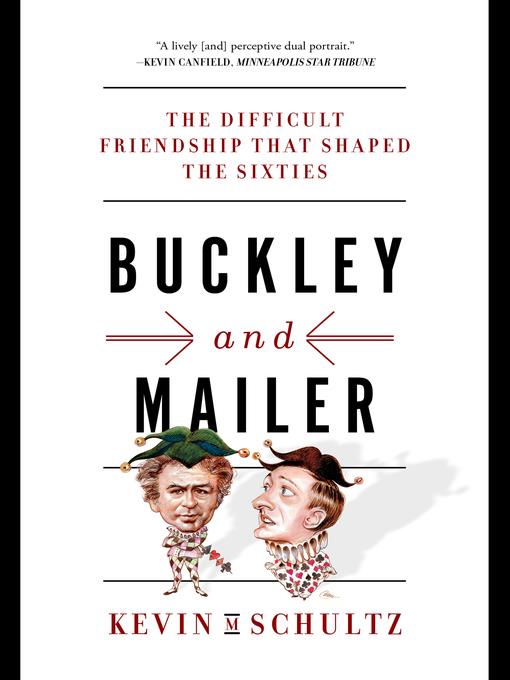
Buckley and Mailer
The Difficult Friendship That Shaped the Sixties
کتاب های مرتبط
- اطلاعات
- نقد و بررسی
- دیدگاه کاربران
نقد و بررسی

March 9, 2015
University of Illinois historian Schultz’s social history unfolds as Norman Mailer and William F. Buckley—heroes of the left and right, respectively—get to know one another in 1962 and become “near-allies in the battle to overturn the Liberal Establishment.” The book is not a dual biography, nor does it span entire careers: it ends in 1969, with Mailer’s entry into the New York City mayoral race when he was 46 and Buckley was 41. Mailer emerges as the adored protagonist, an all-around mensch, and the political prophet of the radical left. Buckley is treated more formally and critically. The book’s central premise—that Mailer and Buckley were trusted confidants—is a stretch. Schultz also dwells fondly on cafe intellectuals and glamorous literary celebrities—such as Truman Capote, whose exploits are amply covered elsewhere—at some expense to the book’s seriousness. Nevertheless, this “difficult friendship,” as Mailer called it, illuminates the decade’s larger cultural context. Mailer and Buckley were bright, magnetic intellectual leaders and publicity hounds with superhuman energy; both loved America but in different ways. Schultz navigates the 1960s through these two larger-than-life men, offering plentiful anecdotes in an informed, entertaining style.

April 15, 2015
No one would love more, other than the subjects themselves, the level of import Shultz lavishes on his premise that William F. Buckley Jr. (1925-2008), a conservative author and commentator who founded the conservative magazine National Review, and Norman Mailer (1923-2007), a successful novelist, essayist, playwright, and cultural critic had great societal impact through the public discourse of their friendship. Despite the concept getting little traction here, Schultz (history, Univ. of Illinois at Chicago) engages the reader with his writing style. Unlike the author's first title, Tri-Faith America, with its broad approach--the faith-based analysis of a generation's impact--this latest work attempts to extrapolate the changing social norms of the 1960s through the lives of two accomplished yet different men. Schultz's examination of the times, both public and private, that fostered Buckley and Mailer's complex friendship illuminates each individual's impact on the era, but unfortunately less is revealed about how they, as a collective, shaped anything except their own inflated self-regard. It's much easier to see their relationship having had marginal effect on the decade in question; modernity has relegated their tiffs to lesser annals. Can't they stay there? VERDICT Recommended, with misgivings, for scholars and students of modern American history.--Jewell Anderson, Savannah Country Day Sch. Lib., GA
Copyright 2015 Library Journal, LLC Used with permission.

























دیدگاه کاربران